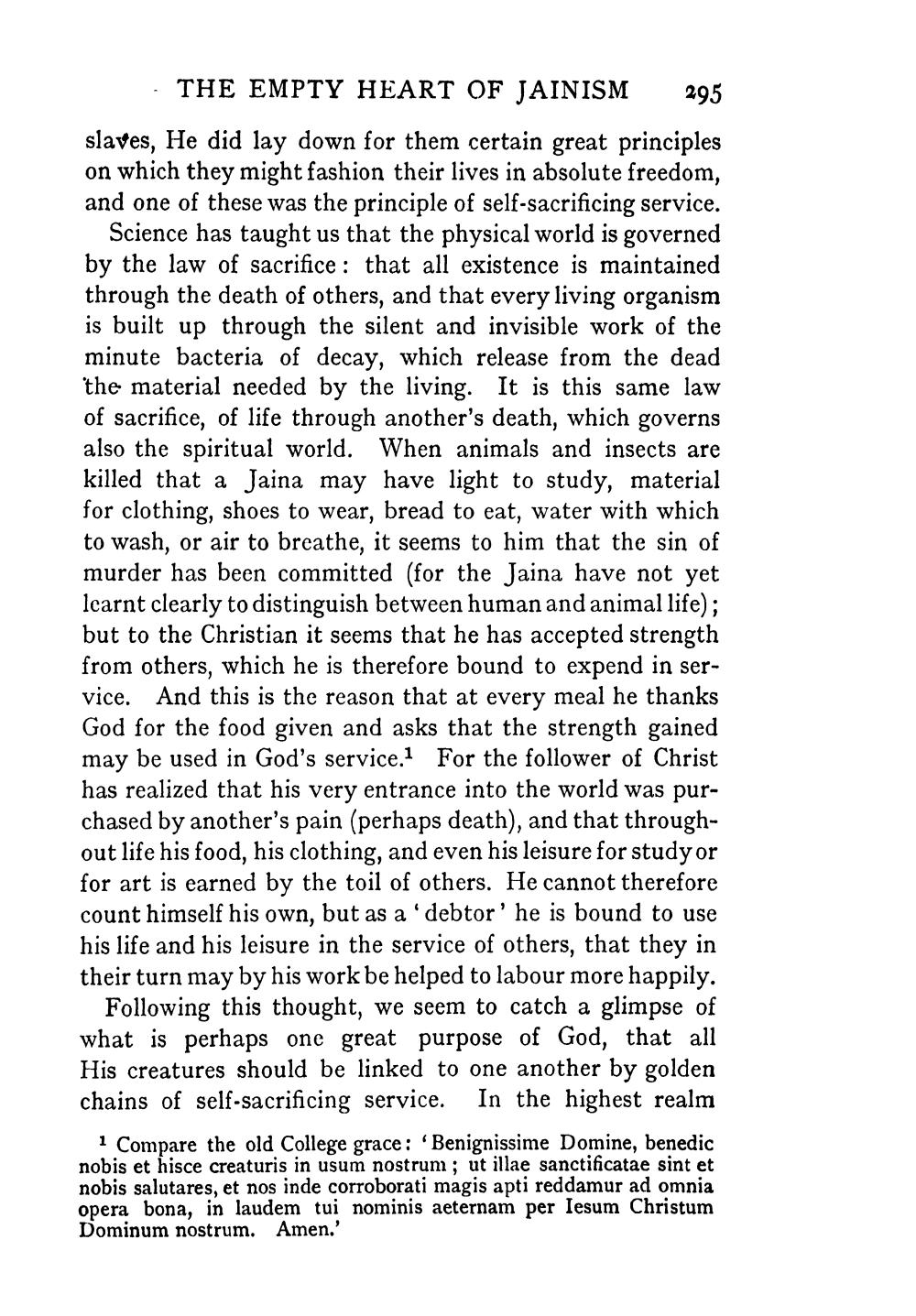________________
THE EMPTY HEART OF JAINISM
295
slaves, He did lay down for them certain great principles on which they might fashion their lives in absolute freedom, and one of these was the principle of self-sacrificing service.
Science has taught us that the physical world is governed by the law of sacrifice: that all existence is maintained through the death of others, and that every living organism is built up through the silent and invisible work of the minute bacteria of decay, which release from the dead the material needed by the living. It is this same law of sacrifice, of life through another's death, which governs also the spiritual world. When animals and insects are killed that a Jaina may have light to study, material for clothing, shoes to wear, bread to eat, water with which to wash, or air to breathe, it seems to him that the sin of murder has been committed (for the Jaina have not yet learnt clearly to distinguish between human and animal life); but to the Christian it seems that he has accepted strength from others, which he is therefore bound to expend in service. And this is the reason that at every meal he thanks God for the food given and asks that the strength gained may be used in God's service.1 For the follower of Christ has realized that his very entrance into the world was purchased by another's pain (perhaps death), and that throughout life his food, his clothing, and even his leisure for study or for art is earned by the toil of others. He cannot therefore count himself his own, but as a 'debtor' he is bound to use his life and his leisure in the service of others, that they in their turn may by his work be helped to labour more happily.
Following this thought, we seem to catch a glimpse of what is perhaps one great purpose of God, that all His creatures should be linked to one another by golden chains of self-sacrificing service. In the highest realm
1 Compare the old College grace: 'Benignissime Domine, benedic nobis et hisce creaturis in usum nostrum ; ut illae sanctificatae sint et nobis salutares, et nos inde corroborati magis apti reddamur ad omnia opera bona, in laudem tui nominis aeternam per Iesum Christum Dominum nostrum. Amen.'




